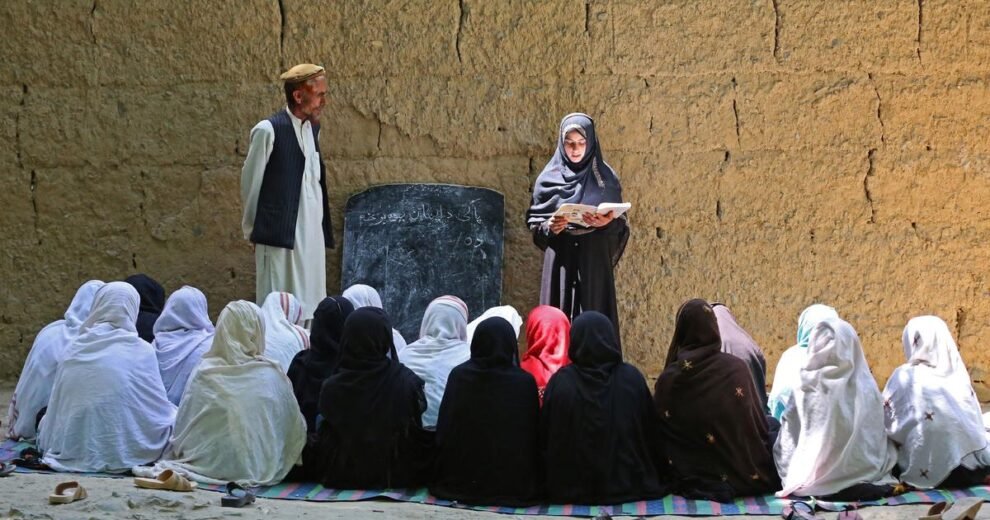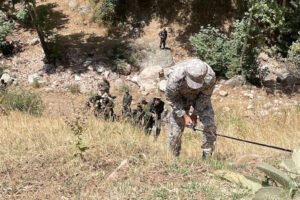Almost 80 girls, all students at elementary schools in Afghanistan’s Sar-e-Pul province, were poisoned over the weekend in two separate incidents, according to a statement from the regional governor’s office. A handful of adults, including teachers, were also sickened, officials said.
The first incident took place Saturday, when 63 people, including three female teachers, one male teacher, another school staffer and a parent of one student “were poisoned at Kabud Aab school” for girls, according to Mawlavi Sadruddin Adib Faroogi, the Sancharak district education director, who was quoted in the statement released by the governor’s office.
In the second incident, which happened Sunday in the same district, the statement said 22 female students and four female teachers were poisoned at Faizabad school.
The students, who were taken to a local hospital, suffered nausea and shortness of breath, which was attributed to an unidentified aerosol poison in the classroom.
Most of the students were from the hospital by Sunday evening. Videos on local media showed students being directed to a minibus with IV tubes in their hands.
A doctor in Sar-e-Pul province, who did not wish to be named, told CBS News local Taliban officials were quick to provide health care for the poisoned students and had promised to find the perpetrators of the alleged poisoning.
Taliban officials said an investigation had been launched.
Schoolgirls were subjected to deliberate poisonings many times before the Taliban retook control of Afghanistan in August 2021. The Taliban, who are generally not in favor of formal education for girls, were accused of some of the previous incidents.
Since taking control of Afghanistan almost two years ago, the Taliban regime has issued several draconian edicts, including banning girls over the age of 12 or grade 6 from classrooms and closing universities and other private education institutions for women.
It was unclear who might be behind the most recent poisonings, but the Taliban have faced a mounting insurgency from the ISIS faction in Afghanistan since they came back to power, including multiple attacks targeting security forces and civilians. But some Afghans note that even if they aren’t directly involved, the Taliban bear responsibility for the circumstances facing girls in the country.
“How can the Taliban claim that they have been able to bring security while two schools in Sar-e-Pul — only girls’ schools — are being targeted?” Fawzia Koofi, a former member of Afghanistan’s parliament who served as a peace negotiator with the Taliban before the group’s 2021 takeover, asked Monday in a phone interview with CBS News. “This is part of the kind of, gender apartheid measures that are taken against women and girls in Afghanistan to create an atmosphere of fear.”
Sodaba Bayani, an Afghan education and women’s rights activist, told CBS News she believed the Taliban authorities were “using chemicals to scare people off, and somehow prevent parents from letting their girls attend school, as this has occurred in Iran so many times.”
“If such incidents occur again, people may give up on girls education,” she said.
Source : CBS News











